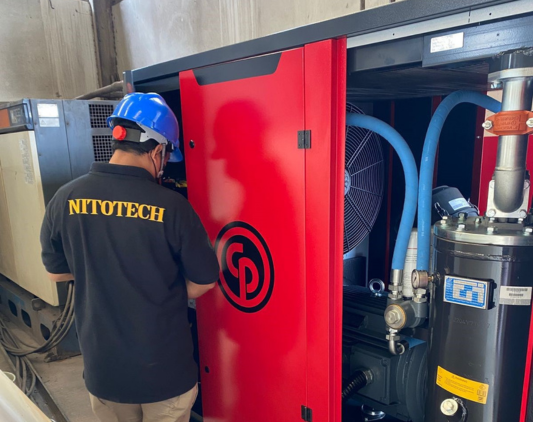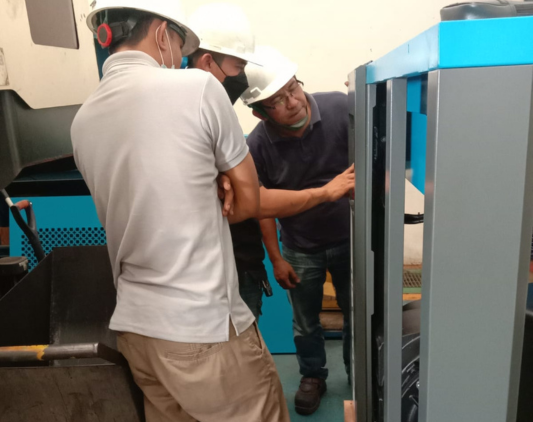If you own or operate an air compressor, it’s important to ensure that the compressed air is dry. Even if your compressor produces relatively dry air, there can still be residual moisture present. This is where a dryer comes in.
So, why do you need a dryer for your compressor ?
Dryer is essential for removing moisture from the compressed air to prevent damage to downstream equipment and ensure that the air is clean and dry. Here are a few reasons why a dryer is necessary for your compressor:
- Preventing Corrosion : Moisture in compressed air can cause corrosion in the air compressor, as well as any downstream equipment that uses the compressed air. Corrosion can lead to reduced efficiency, decreased lifespan, and even failure of the equipment.
- Reducing Contamination : Moisture in compressed air can also lead to contamination of the final product. For example, if the compressed air is used in a food processing facility, any moisture in the air can cause the product to spoil more quickly.
- Improving Air Quality : Moisture in compressed air can also lead to poor air quality. This can be a particular problem in applications where clean air is critical, such as in medical facilities or clean rooms.
When choosing a dryer for your compressor, it’s important to consider the specific needs of your application. There are several types of dryers available, including refrigerated dryers, desiccant dryers, and membrane dryers. The type of dryer you choose will depend on the volume of compressed air you need to dry and the specific dew point you want to achieve.
Refrigerated dryers are the most common type of dryer and work by cooling the compressed air to remove moisture. Desiccant dryers use a drying agent, such as silica gel, to absorb moisture from the compressed air. Membrane dryers use a semi-permeable membrane to separate water vapor from the compressed air.
Dryer is essential for removing moisture from compressed air to prevent damage to downstream equipment and ensure clean, dry air. When selecting a dryer, consider the specific needs of your application and the type of dryer that will best meet those needs.









Leave a comment